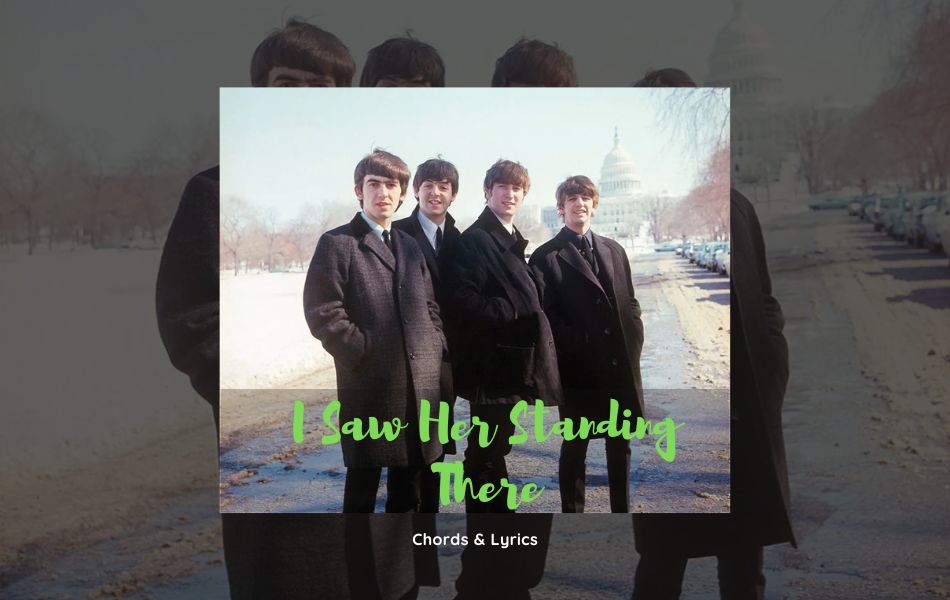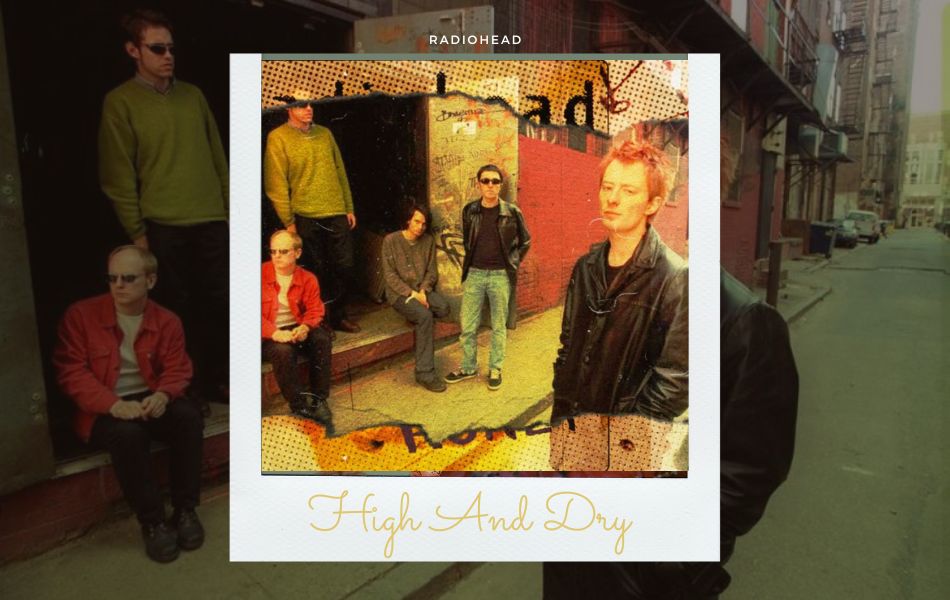All Guitar Chords Beginners Should Learn In Order
Track Info

Song:
Artist:
Writers:
Producers:
Album: Updating
Chords Info
Tuning
CapoNo Capo
Chords Used
For beginners, understanding and mastering the foundational chords is key to unlocking the full potential of this versatile instrument. In the vast landscape of guitar chords, we will introduce overview of all guitar chords for beginners to understand guitar knowledge more easily.
Overview of all guitar chords
Guitar chords are the fundamental basis of music, creating harmony and structure for songs. A basic chord typically consists of three notes: the root, the third, and the fifth. In guitar, chords are categorized into various types, each carrying its own nuance and emotion.
Understanding and practicing these chords not only allows players to accompany singing and play their favorite songs but also builds a solid foundation to advance further in their guitar learning journey.
Must-Learn Chords for Beginners
Open chords
Learning the 7 basic guitar chords - E, Em, A, Am, C, G, and D. The chords are the most essential chords in all guitar chords for beginners. Firstly, these chords are incredibly common in a wide variety of songs across different music genres, making them a versatile foundation for playing music.
Secondly, mastering these chords provides flexibility as they can be played in various positions on the fretboard, allowing for diverse musical expression.
Thirdly, they serve as a stepping stone for learning more complex chord variations and progressions. Many advanced chords, such as 7th chords and inversions, are built upon these basic shapes.
Additionally, practicing these chords facilitates skill development, including finger strength and dexterity, as well as chord transitioning proficiency. Ultimately, learning these 7 basic chords is a smart starting point for any aspiring guitarist, laying down a solid groundwork for further musical exploration and growth.
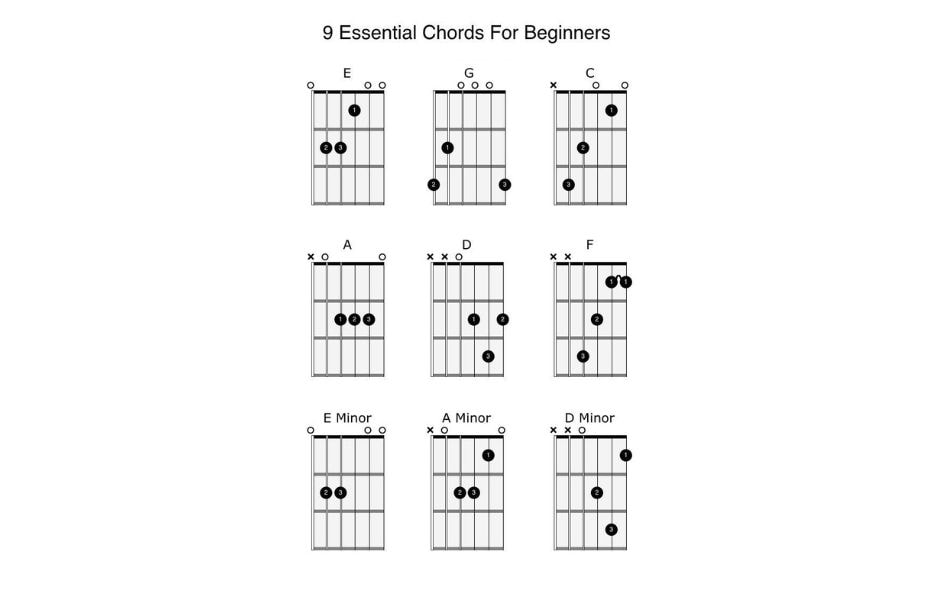
Barre chords
In all guitar chords, barre chords are important chords for guitarist playing. Firstly, barre chords allow for greater versatility in playing music. Unlike open chords, which are limited by their fingerings and positions, barre chords can be moved up and down the fretboard, enabling players to play in different keys and create more complex chord progressions.
Barre chords serve as a foundation for advanced chord shapes and techniques. Many chord variations, such as suspended chords, augmented chords, and extended chords, are based on the principles of barre chords. Additionally, understanding barre chords opens up possibilities for playing solos, improvisations, and intricate fingerstyle arrangements.
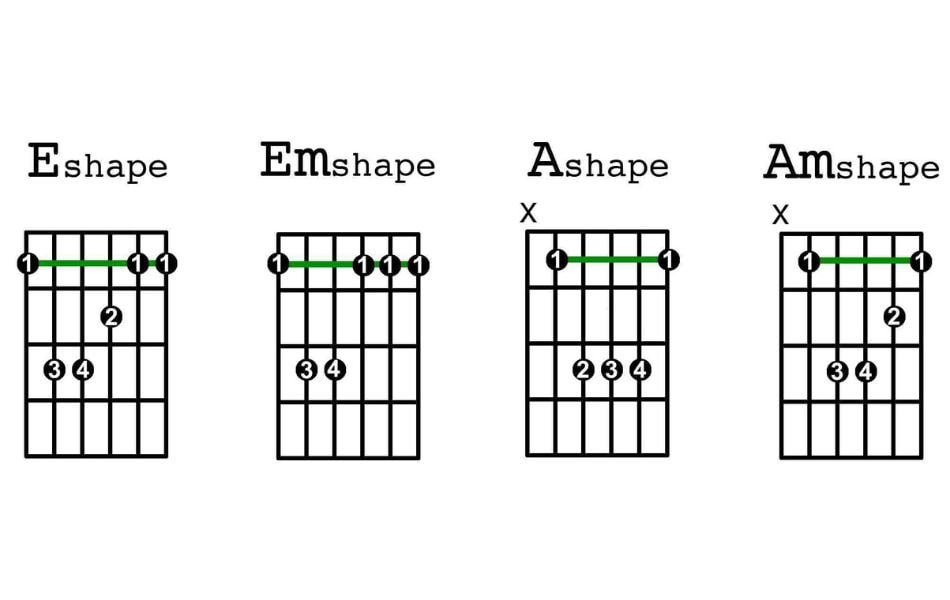
7th Chords
Seventh chords are a special type of chord in all guitar chords, distinguished by the addition of a seventh note. It creates a four-note chord structure instead of the typical three-note structure found in open chords. Below is an overview of seventh chords and their role in music:
Seventh chords consist of four notes:
- the root
- the third (often the second note in the case of major chords),
- the fifth
- the seventh
The addition of the seventh note adds richness and complexity compared to basic chords, generating a unique sense of tension and musical color.
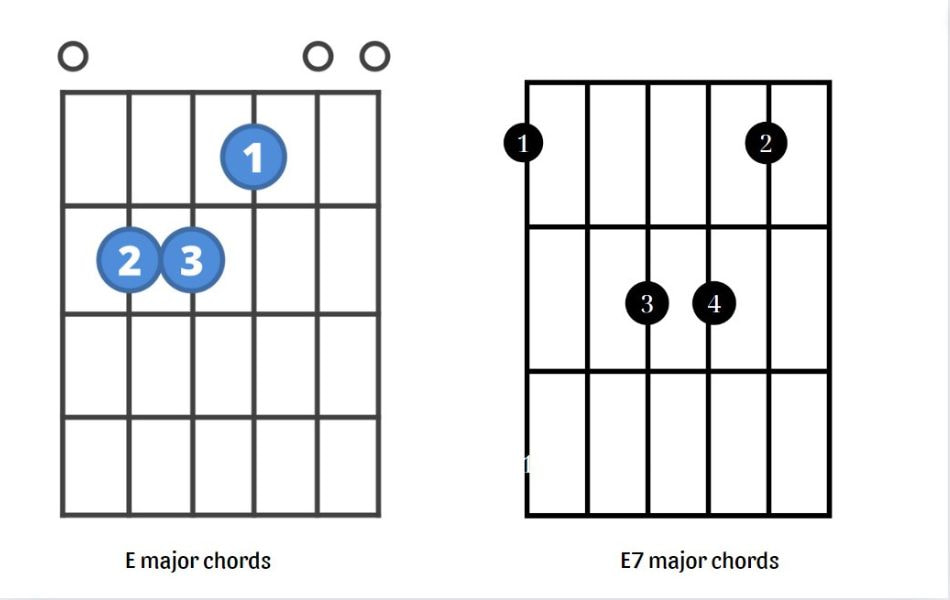
For example, with Em7, we maintain the basic structure of the E minor chord (E-G-B) and add a seventh note, which is D. This creates a more expansive and rich sound compared to the basic E minor chord, bringing a new musical color and deeper emotions to playing and composing music.
Through the preceding article, it is hoped that you have gained an understanding of all guitar chords and their fundamental importance in commencing your guitar learning journey. Memorizing chords will no longer be daunting and complex if you carefully study the information provided in the article. Follow the suggested sequence of chord learning to become proficient sooner rather than later.







